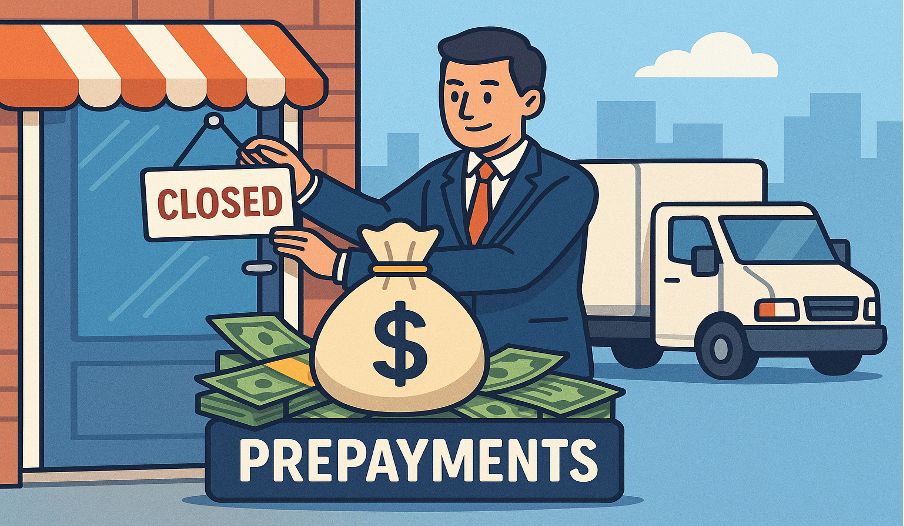
- 03 - 6416 0102
- admin@bcc.my
Prepaid Service Packages – Where is my money?
Prepaid Service Packages – Where is my money?
In today’s consumer-driven economy, prepaid packages have become a popular business model across various industries — wellness centres, beauty salons, gyms, renovation services, and even tech support companies. These packages offer attractive discounts in exchange for upfront payments, locking in customer loyalty while providing businesses with quick cash flow.
But what happens when the business folds overnight?

A Real-Life Scenario: Consumers Left in the Dark
Recently, a fitness application abruptly ceased operations with no prior notice. Social media was flooded with complaints from customers who had just purchased their “exclusive package deals.” With no warning but a refund promise that sounded surreal, consumers were left stranded — their hard-earned money gone.
The Legal Framework in Malaysia
Malaysia’s primary consumer protection laws are:
- Sales of Goods Act 1957 (SGA 1957)
- Consumer Protection Act 1999 (CPA 1999)
- Contracts Act 1950 (CA 1950)
Future Services Contract
Under Section 17 of the CPA 1999 and the Consumer Protection (Future Services Contract)(Amendment) Order 2014, certain prepaid services under “future services contract” are allowed:
| No. | Category of Services | Type of Services |
|---|---|---|
| 1 | Body treatment and beauty |
Weight management and body shaping Facial beauty treatment and face shaping Hair and body hair treatment Manicure Pedicure |
| 2 | Fitness and health |
Gymnasium Exercise centre Yoga centre Aerobic centre Spa centre Massage centre |
| 3 | Recreational, lodging and entertainment |
Theme park Hotel and apartment Golf club Sport club |
| 4 | Educational |
Language class Computer class Mental Arithmetic class Tuition class in accordance with curriculum or module in school, college or university |
| 5 | Personal skill development |
Cooking class Sewing class (includes embroidery) Interior design class Make-up class Flower arrangement and handicrafts class Photography class Art and design class Driving class Music class Singing or dancing class Swimming class (includes scuba diving) Martial art class Modelling class |
| 6 | Maintenance |
Insect and pest control Vehicle washing and cleaning Towing broken-down vehicle Parking space Pool cleaning Housekeeping |
| 7 | Other services |
Matchmaking agency Memorial and crematorium management Water filtration |
If a consumer cancels such future services contract, the supplier may charge the following sum in accordance with Section 17(2) of the CPA 1999:
- Five percent of the full contract price;
- The cost of any goods the consumer used or is keeping; or
- The portion of the full contract price representing services received by the consumer.
In the event the consumer has paid the supplier more money than the supplier is entitled to charge, the supplier shall refund the extra payment or make a refund available¹.
The Gap in the Law
While the law clearly covers situations where consumers terminate contracts, it is silent on the cases where service providers themselves shut down or terminate prepaid services. This leaves consumers with limited protection when a business collapses.
What Can Consumers Do?
If consumers possess complete documentation such as written contract, proof of payment and invoices, they may file a claim against the service provider for breach of contract. However, this is often a long and costly process. More often than not, even if a consumer successfully obtains a judgment, it may only be a paper judgment, as the company could already have been wound up. In such circumstances, consumers are left with the option of filing a proof of debt with the Department of Insolvency Malaysia. Unfortunately, the likelihood of recovering any refund is minimal, as consumers typically rank among the last in the order of priority for repayment.
The reality is that consumers “pay at their own risk” – they bear most of the risk and often with little to no recourse unless they pursue lengthy, uncertain and expensive civil litigation.
Maybe… it’s time for a change since our laws are very much outdated!
Prepayment Protection by CaseTrust in Singapore
Malaysia is not alone in grappling with this issue. Even in Singapore, there is no express legal provision addressing prepaid service failures under the Consumer Protection (Fair Trading) Act 2003.
However, CaseTrust – the accreditation arm of the Consumer Association of Singapore (CASE), a non-profit and non-governmental organization that is committed to providing prepayment protection to consumers. CaseTrust has implemented accreditation schemes for companies that offer prepaid packages such as follows:
1. Renovation Scheme
Contractors accredited under the CaseTrust Accreditation Scheme are required to protect consumers’ deposits through a deposit performance bond which safeguards consumers’ money in the event of business closure or liquidation.
2. Spa and Wellness Accreditation Scheme
Spa and wellness businesses accredited under this scheme are required to protect prepayments made via prepayment protection insurance. Upon making payment, customers receive insurance certificates. If the business folds, the appointed insurer will contact the affected customers for the payouts. Under this scheme, consumers can claim back the unused portion of their prepayments. According to The Straits Times, more than SGD 280,000 has been paid out since 2017 to over 500 affected Consumers²
What about Malaysia?
In Malaysia, there is currently no regulatory framework to protect consumers who prepay for services. Be it in the beauty, wellness or fitness industries, many businesses rely on the prepaid model — but few provide real safeguards. This is a significant commercial blind spot. Some business owners have even taken advantage of this gap, collecting prepayments and disappearing overnight.
What can Malaysia do next?
- Update the Consumer Protection Act 1999 to address prepayment-specific protections.
- Mandate insurance or trust-based holding of prepaid funds for high-risk industries.
- Establish an accreditation framework similar to CaseTrust and require businesses to obtain consumer protection certification.
- Increase public awareness by educating consumers on the risks of prepayments and the benefits of engaging accredited service providers.
My 2 cents –
Prepayment is not just a convenience — it’s a contractual promise. If businesses accept money today for a service tomorrow, there must be mechanisms in place to honour that promise even if the business fails.
As we move toward an economy where prepaid models are increasingly common, it’s time to strike a balance between consumer protection and commercial sustainability.
¹ Section 17(3) of the Consumer Protection Act 1999
² Spa Closure
Need Help?
Should you have any questions or concerns in relation to consumer rights or contractual matter, please do not hesitate to contact us.
Email us at : admin@bcc.my
Call us at: 03-6416 0102
Written by Jessie Kwong
Disclaimer:This article is provided for general information purposes only and does not constitute legal advice. Specific legal advice should be sought based on your individual circumstances.



